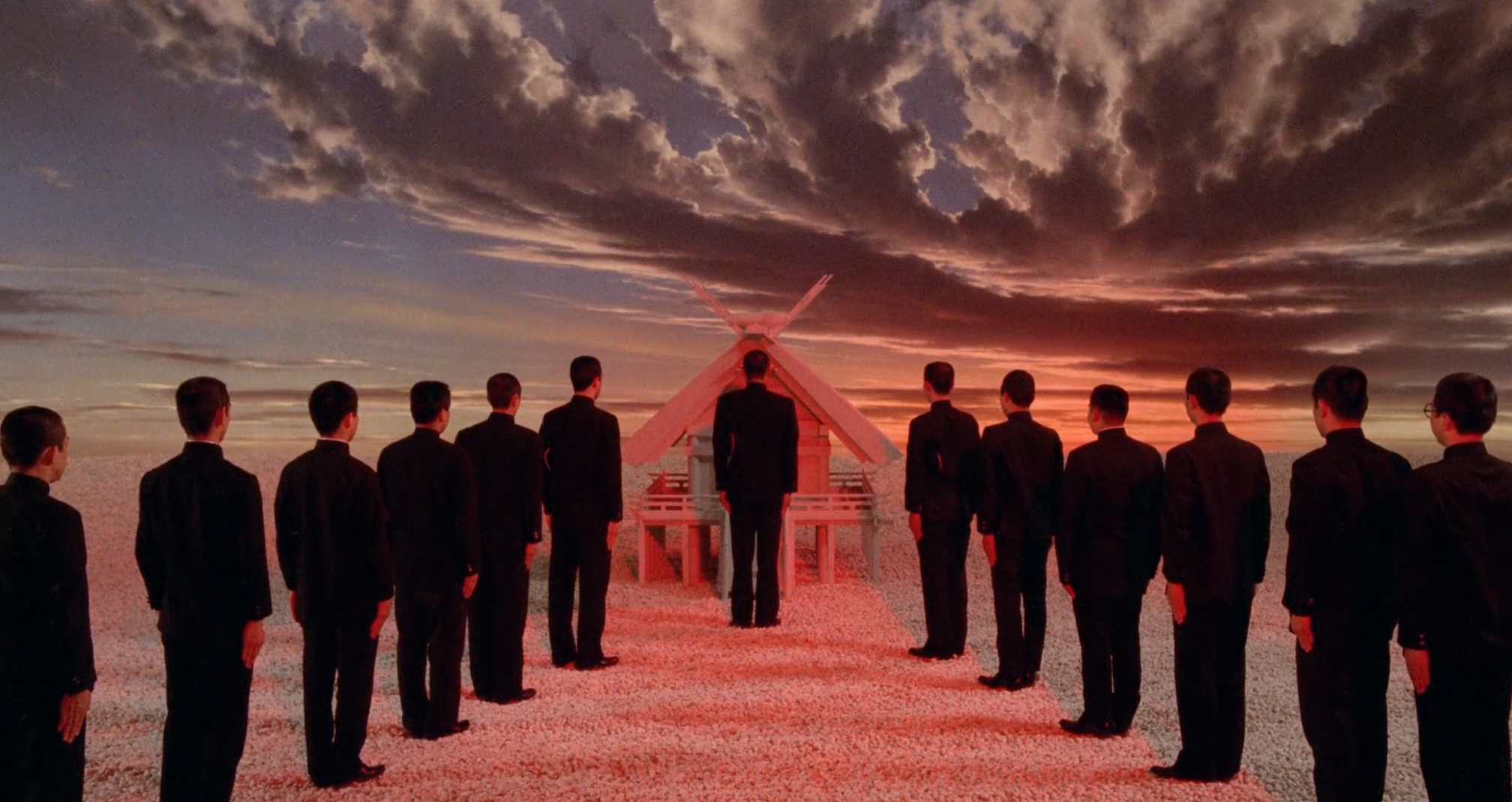Shattering the rules for how a biographical drama can look and be told, Paul Schrader's Mishima rejects the usual character study template in favor of a much more abstract attempt to understand a person through their art. Told in fragments that flit between Mishima's early life, dramatizations of his fiction novels, and the final day of his life, the film pieces together what it believes was the core of this person's life. Schrader's script (co-written with his brother Leonard Schrader) traces within Mishima's history a lifelong struggle with perceptions of his own masculinity and authority—as if he spent his every waking moment trying to compensate for a lack that he could hardly articulate. The character's eventual turn towards reactionary beliefs makes logical sense in the film, but remains baffling all the same.
With all of its talk about beauty—enhanced by Philip Glass' opulent musical score, and Eiko Ishioka's breathtaking production design that transforms Mishima's novels into tactile stage productions—the film conceals an incredibly dark heart. Mishima doesn't inspire sympathy so much as he inspires morbid fascination, and it's both a daring and frustrating choice to focus entirely on the character's harmful delusions without room for much else. Still, Schrader has constructed an unforgettable audiovisual experience that lingers long after it's over.
Genre: Drama, History
Actor: Alan Poul, Bandō Mitsugorō X, Chishū Ryū, Eimei Esumi, Go Riju, Haruko Kato, Hideo Fukuhara, Hiroshi Katsuno, Hiroshi Mikami, Hisako Manda, Jun Negami, Junkichi Orimoto, Ken Ogata, Kenji Sawada, Koichi Sato, Kunihiko Ida, Masahiko Sakata, Masato Aizawa, Masayuki Shionoya, Miki Takakura, Minoru Hodaka, Mitsuru Hirata, Naoko Ohtani, Naomi Oki, Naoya Makoto, Reisen Ri, Roy Scheider, Ryō Ikebe, Sachiko Hidari, Setsuko Karasuma, Tadanori Yokoo, Toshio Hosokawa, Toshiyuki Nagashima, Yasuaki Kurata, Yasuhiro Arai, Yosuke Mizuno, Yuki Kitazume
Director: Paul Schrader

